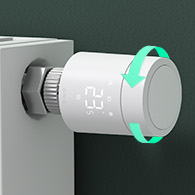P
PrinceofDarkness
Nevertheless BAS, you were the first here to mention the 'F' word, when you said in your first post that a 'friend's neighbour' had a roof 'F'ire due to a shower cable being surrounded my insulation.
I put it to you that if there had been such an inccident, that 'that fire' would have been caused by a loose connection in the ceiling switch (or similar) and not by the temperature of a PVC sheathed cable smothered in insulation - unless the occupant had been having an extended six-month-long shower.........
Give a thought to that situation, dear. A PVC cable would have to go into a complete insulation meltdown and have no circuit protection before it would cause the 'F' situation.
If you'd like to tell me the approximate date and the district of that fabulous inccident, I'd be very pleased to check your story and to confirm it. Otherwise, I'll just regard it as needless and unhelpful scaremongering.
You continue to disappoint me, I thought better of you......
Lucia.
I put it to you that if there had been such an inccident, that 'that fire' would have been caused by a loose connection in the ceiling switch (or similar) and not by the temperature of a PVC sheathed cable smothered in insulation - unless the occupant had been having an extended six-month-long shower.........
Give a thought to that situation, dear. A PVC cable would have to go into a complete insulation meltdown and have no circuit protection before it would cause the 'F' situation.
If you'd like to tell me the approximate date and the district of that fabulous inccident, I'd be very pleased to check your story and to confirm it. Otherwise, I'll just regard it as needless and unhelpful scaremongering.
You continue to disappoint me, I thought better of you......
Lucia.


